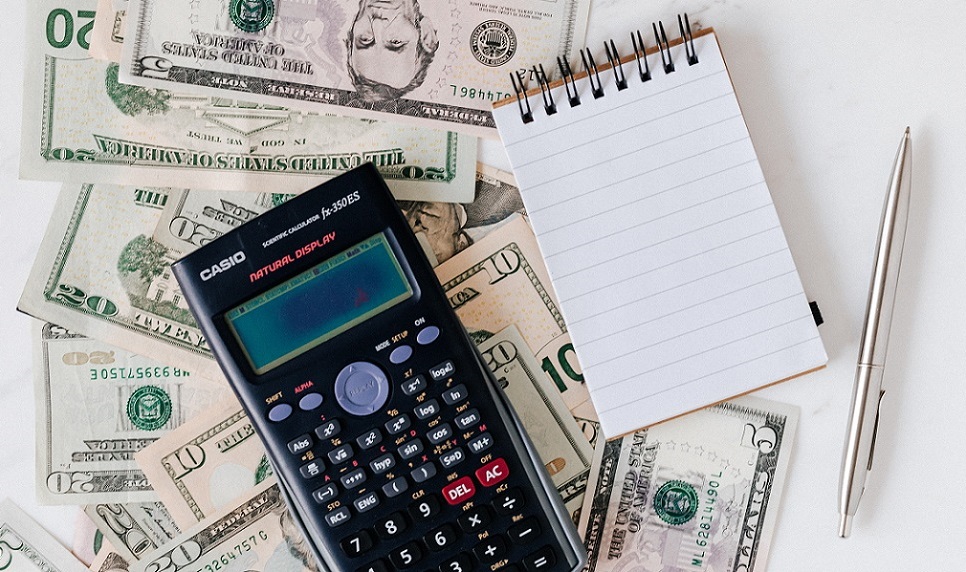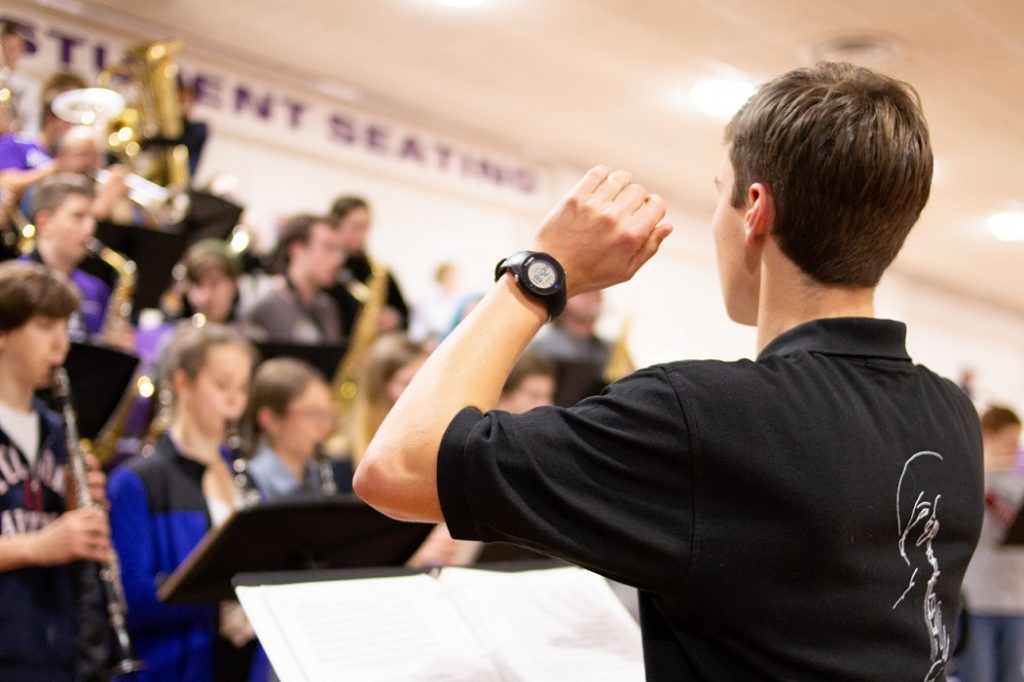Financial Tips for Music Educators
When it comes to funding your program, never get discouraged because there is always money somewhere. You just have to work hard to find it.
I have never been shy about asking for funding or resources for my programs. Over the years, I have noticed some patterns that have led to success when it comes to requesting additional funding. Click on the links below for a few guidelines that I follow:
- HOW TO ASK AND BE SPECIFIC WITH YOUR WANTS AND NEEDS
- I ASKED AND THEY SAID YES! NOW WHAT?
- I ASKED AND THEY SAID NO! NOW WHAT?
- STRETCH THE MONEY YOU HAVE
- USE IT OR LOSE IT
There is Always Money Somewhere
Multiple Departments: Funding for your program is not limited to one department. Additional money can come from various sources, including athletic and student activity accounts from other clubs (provided that this funding is allocated appropriately). If your performing ensemble participates in any entertainment at athletic events, take the pulse of your relationship with the athletic director and ask if there is money available to pay for pep sheet music or instruments used specifically for pep events.
 I worked at one school where the athletic account covered drumline bleacher stands and pep-band drum sets. It also provided funding for five pep band charts annually. (I was appreciative of this and let a coach or two pick some of the pieces that we ordered.)
I worked at one school where the athletic account covered drumline bleacher stands and pep-band drum sets. It also provided funding for five pep band charts annually. (I was appreciative of this and let a coach or two pick some of the pieces that we ordered.)
Some music directors may not see school spirit items as a priority, but it can free up money in other areas. Don’t hesitant to ask for or accept funding from larger departments that may have a surplus. Other small clubs have offered to buy the band music before for a specific event. We’re all in this together, so I gauge whether to accept the funds. If another group is running a fundraiser, I’ll do my best to keep costs down and either take care of or find another source for the music.
THE YEV ELECTRIC VIOLIN: Add an electric ensemble to your traditional program!
Grants and Resources: Grants are always an option for music programs. You may find success looking for available grants on your own, or you can ask a trusted parent or student leader to do some research. Start with your state and national music organizations. Stay updated with educational magazines and articles. Grants vary — some may be specific to a discipline, area or low-income programs, while others may have few restrictions. We all are aware that some college scholarships don’t get many applicants. The same is true for grants, so when possible apply to ones that you have a higher chance of getting.
When in doubt, apply for equipment or programs that will be beneficial to your students. Here’s a starting list:
- The Meemic Foundation
- National Association for Music Education Scholarships and Grants
- The National Association of Music Merchants
- The Country Music Association
- The local chapter of Lions Club International, Rotary International, Kiwanis International or other social organizations
- Local and state organizations that represent your student’s backgrounds.
It also helps to be aware of current events. For example, COVID-19 brought forth the Education Stabilization Fund as a part of the CARES Act. Some music programs were able to buy instruments and music software from this grant. While your administration will make the final decision, being aware of these situations can help you advocate promptly.
Additional Budgets: Some other “uncommon” solutions may exist. Does your school allocate textbook money? Probably. Create a proposal to request the purchase of method books or sheet music. Some schools allocate textbooks to departments with a rotating schedule. In most schools, the music department is usually not a part of this schedule. The powers that be assumed that we didn’t need or want these resources. After some written proposals with rationales, we were able to cover a classroom set of warm-up and technique books for our program.
Consider speaking to your administration about options involving capital outlay, which are funds used to acquire, upgrade, maintain or repair capital assets/equipment. Many districts consider $500 and above to determine whether an item falls under capital outlay. A $1,000 flute qualifies, but a $20 pair of sticks is probably a supply (consumable or non-consumable, depending on your district). At some schools, capital outlay is only for purchasing items; if the item needs repair or improvements, this comes from another budget, which is typically called something along the lines of “maintenance and repairs.” There is another option called “capital improvements,” but this is for improving an asset to add value directly to the asset. There is a chance that your district may already be paying for repairs out of a budget under the maintenance and repairs categories. However, some schools may benefit from looking into this.
 Ask the Community for Money: Community members such as small businesses, alumni and even former music parents can provide financial support. Be clear and concise in your request. Be mindful of the companies that want to sponsor you. Reputation and ethics are more important than fundraising.
Ask the Community for Money: Community members such as small businesses, alumni and even former music parents can provide financial support. Be clear and concise in your request. Be mindful of the companies that want to sponsor you. Reputation and ethics are more important than fundraising.
Another option is to offer community members the opportunity to donate materials that may help your program. Many people have forgotten instruments in their closets. They will often sell them for a low price or donate them to a music program. Always follow up with a handwritten thank-you note and a receipt for the donation.
I send out an email or letter around November to encourage end-of-year giving. I’ll sometimes send another one around spring cleaning. We typically get a good response and receive about five usable instruments for the program annually.
How to Ask and Be Specific with Your Wants and Needs
Which request do you think would have a greater chance of being considered?
- I would like to ask if any funds are available for a new or used trumpet. The approximate price is $800, but I have some leads on a high-quality used instrument for $550. The $800 price includes the instrument and two mouthpieces. There are some cheaper horns available, but the brand I’m asking for would be a part of our program for at least 15 years with routine maintenance. If we can attain this instrument, it would be put immediately into use in three periods of band, marching band, pep band and jazz band. As you’re aware, over 75% of our students require a school-owned instrument. This instrument would benefit at least three current members and help us promote even more participation in our ever-growing program. Thanks for your consideration!
- I am requesting more money for the music program for instruments.
In request 1, I get straight to the point by asking if there is money available for an instrument. I then give a price, some options that show I have done my research, support for longevity, an authentic sense of urgency, amount of students who would benefit, brief information about our program, a reminder of our recruitment efforts and a friendly closing.
Request 1 is long enough to provide supporting details, but short enough to not inundate an administrator with a run-on communication. It also doesn’t leave much to follow up on. I may receive an email back asking if I could pay for this out of my own budget, which I could then respond to with reasons why not (out of money, sudden expense, just a great deal coming up, etc.).
Response 2 offers a slim chance of opening up a budget discussion and provides very little for a decision-maker to work with.
Asking for what your program needs either gets a solution or raises awareness. Best-case scenario? You get more resources for your students. Worst-case scenario? Someone tells you no, but the people who make financial decisions are aware that there is a need for higher-quality items or an increased inventory.
Some teachers may feel anxiety and apprehension when asking for funding as if they are asking for money for themselves or that they may appear greedy. Others feel guilty about other programs. “The volleyball team doesn’t get a lot of funding, so what right do I have to ask for more?”
I got over any fear or uneasiness. First, this money is not for me. I’m asking for funds that the district or taxpayers make available for education. We are an educational program, therefore, we can ask for that money. Second, the volleyball coach can ask for his program, and I’ll worry about mine.
 I Asked and They Said Yes! Now What?
I Asked and They Said Yes! Now What?
Say thank you! Better yet, have a student write a handwritten thank-you note (and check off that sweet, cross-curricular/writing component that schools often want from each class). Second, don’t brag about it. Financial decision-makers may have quite a few programs coming to them for assistance, and they responded to you. If anyone wants to know how the school spends money, they can ask the people in charge of that area.
I Asked and They Said No! Now What?
Was it a “no,” or a “no, not right now?”
Either way, don’t take it personally. The “no” was not a direct attack on your program, but more than likely, a decision made with information that you might not have access to, such as future expenses, needs of other departments or account balances.
Reevaluate: Did you present the group’s case in the best way possible? Could you have been more precise? If you have a good relationship with your administration, ask them bluntly, “Is there anything I could have done differently that would have resulted in a different outcome?”
Follow-up: Ask your administration if you can revisit this request in three to six months. Chances are you won’t get a firm “no.” The administrator may invite you to visit this at another time.
Do not retaliate! You may feel that since you didn’t get a tuba, the school shouldn’t get a band at the pep assembly. Retaliation hurts the program and the school and can create a negative relationship between your program and the school. Don’t be known as someone who pouts when they don’t get their way.
Stretch the Money You Have
A Good Bow or Mouthpiece Can Go a Long Way: If your program cannot purchase or raise funds for a new instrument, consider purchasing good mouthpieces or bows that you can check out to students. A high-quality accessory can significantly improve the tone and control of a beginning or intermediate instrument.
 Outsourcing is OK: I was often in the position of wanting to do auditions or placements but not having the money or time. Outsourcing these jobs is OK if your district is fine with it. I never want to take work away from those who depend on judging or clinics, but if you have a larger program and little funding, consider completing these digitally. We moved to pay $5 for initial chair placements. Students spoke an ID number into a recorder and then performed their excerpts. I compiled the digital files and emailed them to off-site adjudicators who were professionals on each instrument. Our band parent association paid the adjudicators $5 per audition, and they emailed back results and feedback to over 125 students within 24 hours. Remote or outsourced judges are also an excellent option for a rural school that may not have regular access to other music teachers.
Outsourcing is OK: I was often in the position of wanting to do auditions or placements but not having the money or time. Outsourcing these jobs is OK if your district is fine with it. I never want to take work away from those who depend on judging or clinics, but if you have a larger program and little funding, consider completing these digitally. We moved to pay $5 for initial chair placements. Students spoke an ID number into a recorder and then performed their excerpts. I compiled the digital files and emailed them to off-site adjudicators who were professionals on each instrument. Our band parent association paid the adjudicators $5 per audition, and they emailed back results and feedback to over 125 students within 24 hours. Remote or outsourced judges are also an excellent option for a rural school that may not have regular access to other music teachers.
Instrument Repair Hacks: Lastly, instrument repairs can eat up costs quickly. Check out this article I wrote on some money and time-saving tips when dealing with instrument repairs.
Use It or Lose It
Very few educators are in a place where they have a surplus of funds at the end of the year. Additionally, many budgets are “use it or lose it,” meaning that if you do not spend all your budget money, it cannot roll over into the next year. It’s gone.
In many cases, a school finance director may see a pattern of one program underspending by $200 a year, and another program or area in need of additional funding. A reasonable assumption would be to cut the first program’s budget by $200 and allocate more money to the other program in the next budgeting cycle.
I don’t advocate frivolous spending, however, many of us have experienced the reality of sudden expenses coming up. These often fall in the area of repairs, sheet music replacements or even a new student moving in who is in need of some supplies.
Create a surplus list for items that can be covered by a small amount of remaining budget money. I have tuners, metronomes, brass mutes, reeds and sheet music on this list.
What are your budgeting tips? Email us at educators@yamaha.com.
















